Are you dreaming of a small, cuddly companion but dread the thought of constant vacuuming and lint rolling? You’re in luck! Many adorable small dog breeds shed very little, making them ideal for allergy sufferers or anyone who prefers a cleaner home. From playful terriers to regal toy breeds, here’s a guide to some of the cutest small dogs that don’t shed (or shed minimally).
Affenpinscher
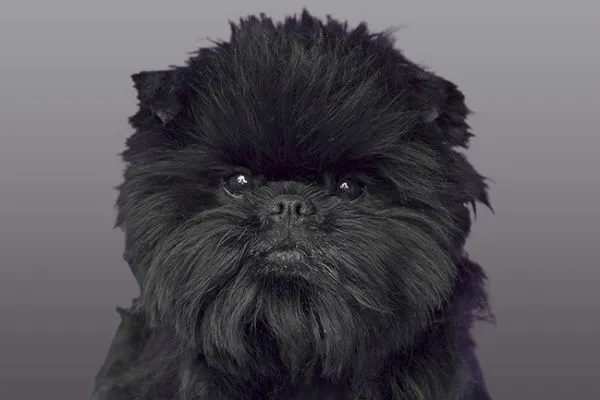 affenpinscher
affenpinscher
The Affenpinscher, meaning “monkey-like terrier,” is a clever and confident breed. This toy breed is small in size but big in personality. Their wiry coat requires minimal maintenance, shedding very little and possessing almost no doggy odor. A twice-weekly brushing with a slicker brush and comb is usually enough to keep them looking their best. Known for their comical expressions and playful nature, the Affenpinscher makes a delightful, low-shedding companion.
Basenji
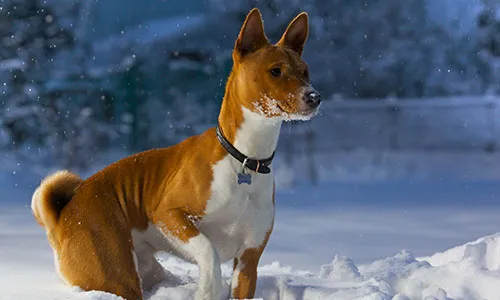 basenji
basenji
If you appreciate the qualities of a hound but dislike the typical hound odor and shedding, the Basenji might be a perfect match. These unique dogs shed very little, thanks to their short, fine coat. A quick brush now and then is all they need. Basenjis are also known for being quiet dogs, sometimes referred to as “barkless dogs,” making them well-suited for apartment living, provided they receive adequate daily exercise and mental stimulation.
Bichon Frise
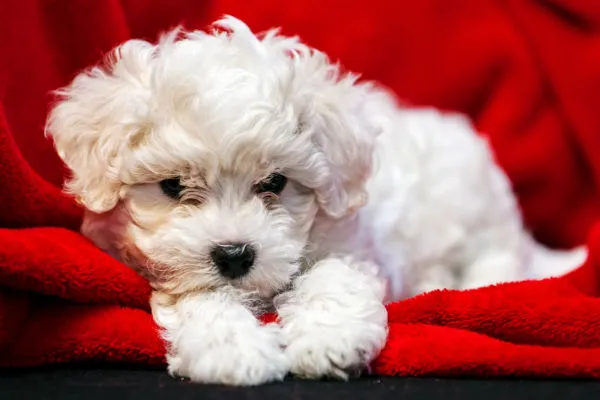 bichon frise
bichon frise
The Bichon Frise is a truly non-shedding small dog breed, often recommended for people with allergies. Their fluffy, white coat requires regular grooming, including frequent brushing and occasional baths, to prevent matting and maintain their signature powder-puff appearance. While they require more grooming commitment than some other breeds on this list, their playful and affectionate personalities make it well worth the effort.
Bolognese
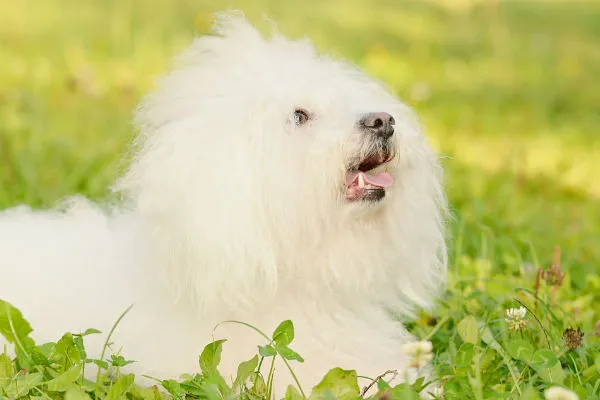 bolognese
bolognese
Similar to the Bichon Frise, the Bolognese boasts a fluffy coat composed of hair rather than fur. These charming dogs don’t shed, but their coat requires daily grooming to remove dead hair and keep them looking their best. Bolognese dogs are known for being intelligent, calm, and devoted companions, thriving on human interaction.
Brussels Griffon
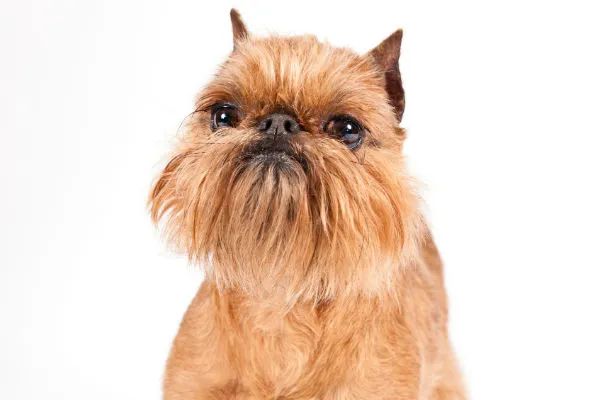 brussells griffon
brussells griffon
The Brussels Griffon, despite its small stature, is a robust and lively breed. Both smooth-coated and rough-coated varieties shed minimally with regular grooming. Their compact size makes them adaptable to apartment living, as a daily walk and some indoor playtime usually meet their exercise needs. These loyal little dogs bond closely with their families and prefer to be in their company frequently.
Chinese Crested
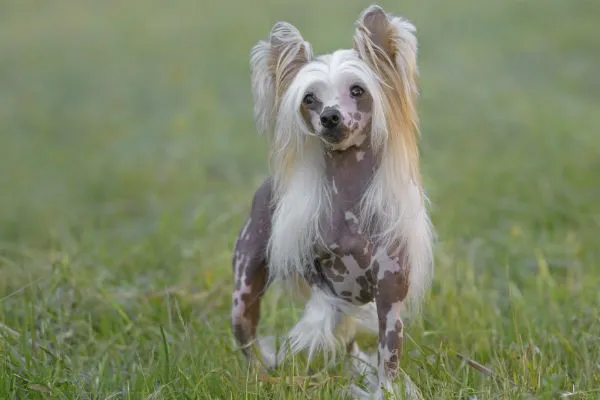 chinese crested
chinese crested
For those seeking a truly unique look and minimal shedding, the Chinese Crested is an intriguing choice. This breed comes in two coat types: hairless and powderpuff. Hairless Chinese Crested have hair only on their head, tail, and feet, while the powderpuff has a soft, fine coat that sheds very little. Hairless varieties require extra skin care to protect them from sun, cold, and potential irritations.
Coton de Tulear
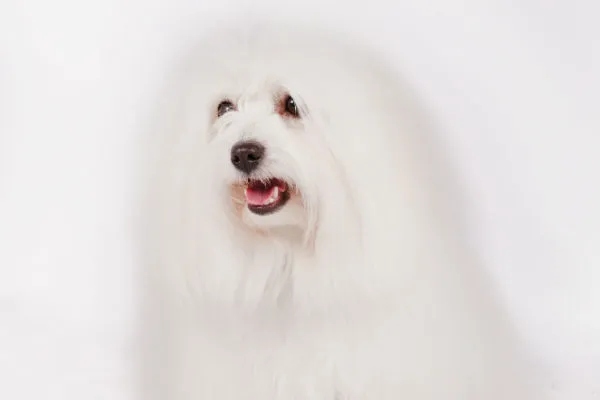 coton de tulear
coton de tulear
The Coton de Tulear, named after the port city of Tulear in Madagascar, possesses a distinctive long, fluffy, white coat that is considered hypoallergenic. This makes them a popular choice for allergy sufferers seeking a small, non-shedding dog. While daily grooming is necessary to prevent mats and tangles, their gentle and affectionate nature makes them wonderful family pets.
Havanese
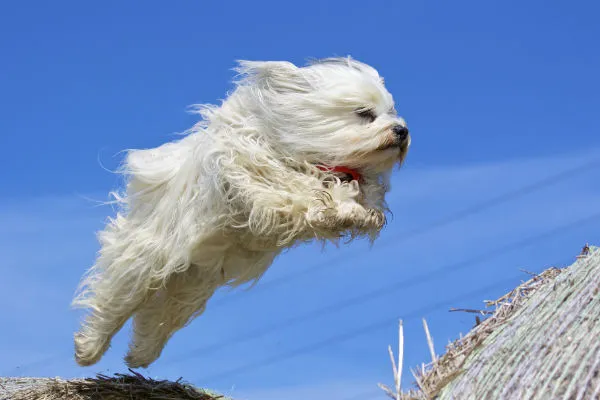 havanese
havanese
The Havanese, Cuba’s only native breed, offers owners a charming personality and a coat that doesn’t shed. This means less time spent cleaning up hair and more time enjoying the playful antics of these spunky little dogs. Their coat requires weekly brushing and regular baths to maintain its cleanliness and health. Havanese are known for their intelligence, trainability, and love of attention.
Maltese
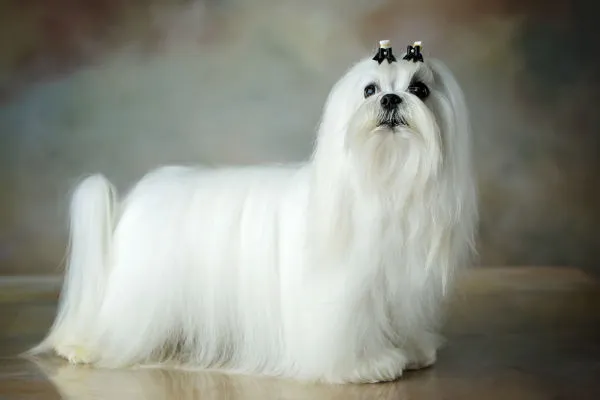 maltese
maltese
Maltese dogs have captivated hearts for millennia. These ancient dogs have changed little over the centuries, likely due in part to their desirable low-shedding qualities. Their long, white coats require regular brushing to prevent mats and occasional baths to keep them looking pristine. Maltese are gentle, playful, and adaptable, making them ideal companions for various lifestyles.
Lhasa Apso
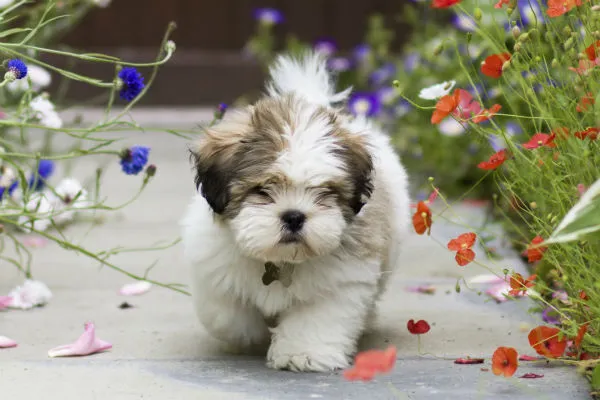 lhasa apso
lhasa apso
The Lhasa Apso, originating from Tibet, is a calm yet playful companion. While they enjoy walks, they are equally content relaxing in their owner’s lap. Lhasa Apsos don’t shed, but their long coats require regular maintenance. Many owners opt for a “puppy cut” to simplify grooming and brushing. These intelligent and independent dogs make loyal and devoted family members.
Miniature Schnauzer
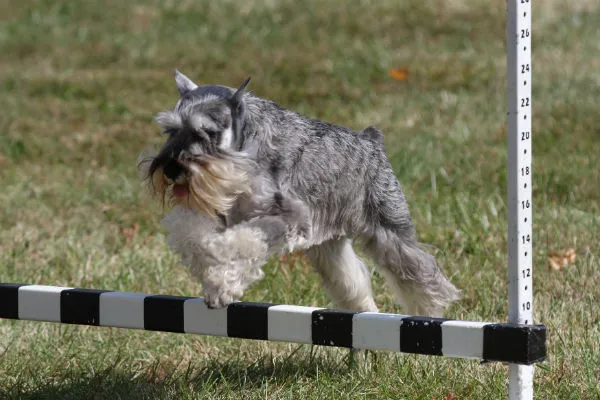 miniature schnauzer
miniature schnauzer
The Miniature Schnauzer is a smart, trainable, and cheerful breed that strongly resembles its larger Standard Schnauzer cousin. These terriers shed very little and adapt well to both city and country living, as long as they are close to their beloved humans. Weekly brushing and regular grooming are essential to keep their distinctive beard and eyebrows looking their best.
Poodle (Miniature and Toy)
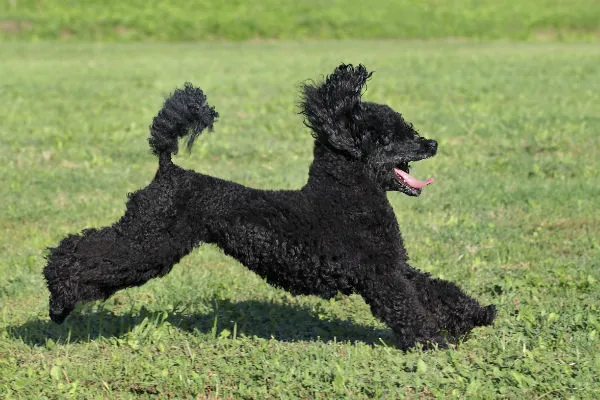 poodle
poodle
When thinking of small, non-shedding dogs, Poodles often come to mind, and for good reason. Miniature and Toy Poodles offer the same non-shedding and hypoallergenic qualities as Standard Poodles, but in a more compact size. All Poodles are highly intelligent and easy to train. Their curly coats require regular grooming to prevent matting and maintain their stylish appearance.
Scottish Terrier
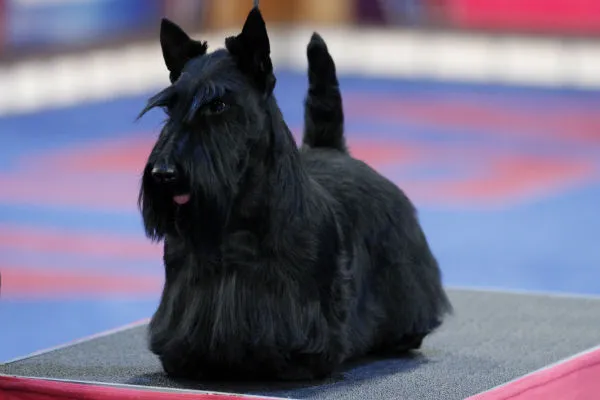 scottish terrier
scottish terrier
The Scottish Terrier, also known as the Scottie, is a bold and confident terrier breed with a big personality. Their wiry, weather-resistant coat sheds very little but requires regular brushing, grooming, and occasional hand-stripping to maintain its health and breed-specific outline. Scotties are clever and independent dogs with a strong prey drive, so caution should be exercised around smaller animals.
Shih Tzu
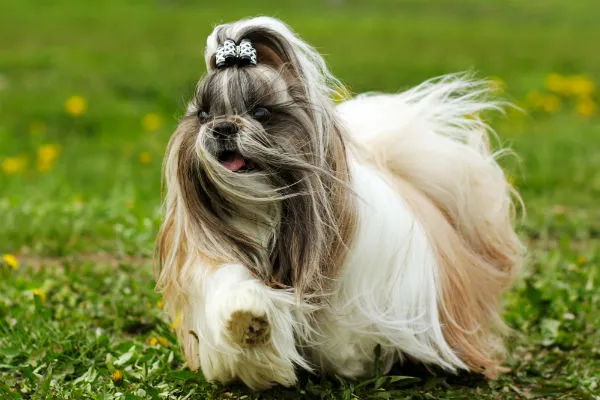 shitzhu
shitzhu
The Shih Tzu, a breed favored by the Tang Dynasty, comes in a variety of colors and patterns. Their long, silky hair is low-shedding and looks regal when brushed out. These toy dogs are sturdy and lively, with a proud and confident demeanor. Bred to be house pets, Shih Tzus possess a gentle and trusting nature, making them exceptional companions.
West Highland White Terrier
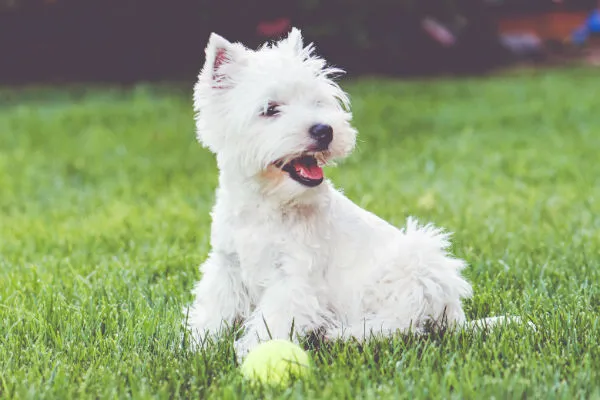 west highland terrier
west highland terrier
The West Highland White Terrier, affectionately called Westies, has a coarse, white coat that sheds very little. These sturdy little dogs are intelligent, loyal, happy, and entertaining. Their curious nature and moderate energy levels, combined with the independent streak common among terriers, can make training a bit challenging at times.
Xoloitzcuintli
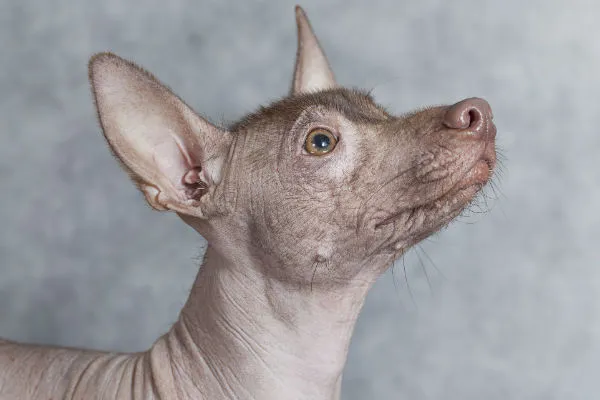 xolo
xolo
Also known as the Mexican Hairless, the Xoloitzcuintli is an ancient and rare breed that can be hairless or coated. Hairless Xolos have some hair on their heads, while the coated variety has a short, fine coat that sheds minimally. As with all hairless breeds, the Xolo requires extra skin care to protect it from the elements. Xolos are attentive watchdogs and affectionate companions, known for their tranquil personality within the home.
Yorkshire Terrier
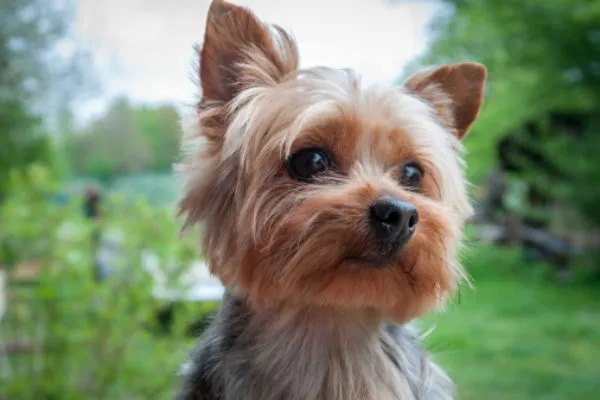 yorkie
yorkie
The Yorkshire Terrier, or Yorkie, is a sprightly, tomboyish, and affectionate toy breed full of personality. These spunky lap dogs are popular for good reason. Yorkshire Terriers don’t shed, and their silky coats are beautiful when brushed daily. Despite their regal appearance, Yorkies have working-class roots, having hunted rats in English clothing mills.
Other Low-Shedding Terriers
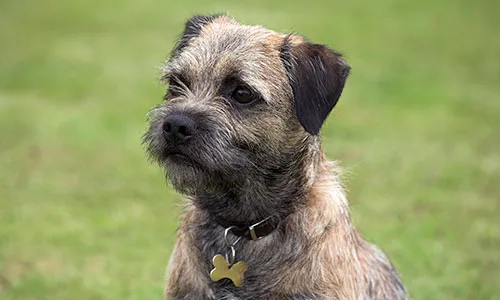 border terrier
border terrier
The Terrier group is full of small dogs that don’t shed or shed minimally. Wiry- and coarse-haired Terriers tend to shed less than other breeds. Some other non- or low-shedding Terrier breeds include the Border Terrier, Cairn Terrier, and Dandie Dinmont Terrier.
Choosing a small dog that doesn’t shed can make life easier for allergy sufferers and those who prefer a cleaner home. Remember that even non-shedding breeds require regular grooming to maintain their coat health and appearance. Research different breeds to find the perfect match for your lifestyle and personality, and always acquire your dog from a responsible breeder. With the right choice, you can enjoy the companionship of a cute, cuddly, and relatively hair-free friend for years to come.
